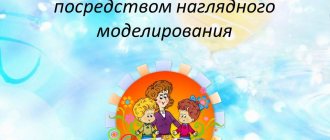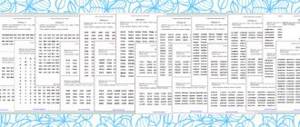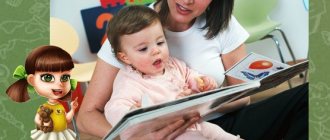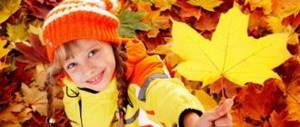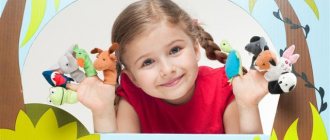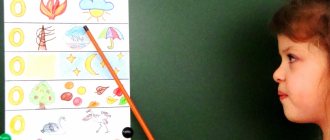How to analyze an open lesson in kindergarten
Self-analysis of a complex lesson in the middle group “Journey to the Thirtieth Kingdom to Ivan Tsarevich”
The lesson was conducted with children of the middle group, 16 children were present. Children in this group have developed learning skills. Children easily make contact with adults. They know how to hear and listen to the teacher.
Theme of the lesson: “Journey to the thirtieth kingdom to Ivan Tsarevich.” This activity is complex, it combines educational areas: cognition, socialization, work, communication, fiction, physical education, artistic creativity and music. When developing this lesson summary, I first of all took into account the age, mental, and individual characteristics of children in the middle group. Taking all this into account, I outlined the goal, objectives, content of the lesson, determined the form of delivery, methods, techniques and means necessary for positive results.
The purpose of the lesson is designated as the activation of children’s mental abilities, logical thinking, and children’s creative abilities.
I set the following tasks: educational - to teach how to creatively and proactively approach solving problematic problems, to teach how to select figurative and opposite words; developmental - develop analytical, aesthetic perception, sustained attention, memory, speech, imagination, continue to develop ideas about geometric shapes, strengthen children’s ability to draw in unconventional ways (with cotton swabs, cork impressions); educational - to cultivate moral qualities: kindness, responsiveness, desire to help others during a joint discussion.
I introduced a playful motivation into the lesson: a journey into a fairy tale.
During the lesson, learning was structured as an exciting problem-based game activity. Traveling on the bus, children performed various tasks. This activity created a positive, emotional background for the learning process, increased children’s speech activity and maintained interest throughout the lesson.
During the lesson, I used visual, verbal and practical techniques aimed at using speech, cognitive, motor, practical skills and abilities and improving them. The proposed tasks were given in order of increasing complexity, which contributed to the solution of the assigned tasks for the development of attention, imagination, memory, speech and artistic and aesthetic perception. Throughout the entire lesson, the children were friendly, responsive, and helped each other.
The type of lesson is complex. Which contributes to solving the assigned tasks in a comprehensive manner.
All stages of the lesson were interconnected and interdependent, subordinated to the given topic and goals of the lesson. Changing the type of activity at each stage of the lesson made it possible to prevent fatigue and satiety with one type of activity. Children dynamically switched from word games to playing with objects and drawing.
To obtain better performance results for children, a variety of materials were used: visual aids, didactic handouts, ICT. The visual material corresponded to the topic and purpose of the lesson.
At all stages of the lesson, the speech, cognitive, and motor activity of the children intensified.
The following methods were used in the lesson: verbal (were used several times) to create game motivation, solving problem situations, dialogue with Ivan Tsarevich; visual methods were used throughout the lesson when looking at a magic map, geometric shapes, and drawing samples; practical methods - performing a creative task (drawing feathers for the Firebird).
A method of control and stimulation in the form of approval and praise.
The methods used were consistent with the material being studied and the ways of organizing children’s activities in accordance with the level of the group.
Analyzing the activities of children in class, I would like to note that they showed cognitive activity, reacted emotionally to methods of activating activities, and used existing knowledge and skills. They were interested, attentive, organized. Children were offered tasks that encouraged them to solve assigned problems. Encouraged indecisive and shy children to speak out.
The duration of the lesson is 20 minutes, which corresponds to the standards of San PIN.
Analyzing the lesson, we can say that the assigned tasks were successfully completed. I believe that the lesson is structured logically, and the stages of the lesson are interconnected.
The logical structure of the lesson made it possible to conduct it without going beyond the time allotted for completing the task.
I think that the game motivation aroused the interest of the children and the activity was quite high. However, the children worked at their own pace and completed the creative task a little later, not because of slowness, but because of their individual capabilities. Although this does not indicate that they have less skills and knowledge.
The children pleased me that the kindness of the child’s soul, their curiosity was felt throughout the entire lesson and in the practical part of the lesson,
A survey of children after the lesson revealed that the children liked the lesson and would like to participate in the continuation.
Goryunova T.V., teacher of MKDOU No. 5 “Alyonushka” p. Khorol, Primorsky Krai
https://nsportal.ru/detskiy-sad/raznoe/2012/05/22/samoanaliz-zanyatiya
Secrets of an exciting activity (from the experience of a teacher)
2) Progress of classes in kindergarten (process). Includes: repetition of covered material, explanation of new material, consolidation. Fulfillment of assigned tasks, taking into account health-saving teaching methods. The lesson can be complex. Including means to achieve several goals or just one, using game moments, visual material, dynamic pauses or physical minutes. Independent activity. In this article, I would like to share “little secrets” at each stage of the lesson, which can be useful in preparing an exciting, unforgettable event for preschool children. Lesson structure. 1) Start of classes in kindergarten (organizational moment, greeting). The goal of this stage is to include each preschooler in activities and create a favorable atmosphere in the classroom. -Ritual greetings. — Using exercises to concentrate attention, games for team building. -Organization of preschoolers and the mood for classes. — Stimulation of interest and emotional mood. For example:
Reflection techniques in classes in additional education
Reflexive technique “Smileys”
“- students are given copied sheets of paper with a simplified image of a person whose face is not drawn.
The guys themselves draw the emotions that are characteristic of them now. They can add details to the image (a balloon, a bouquet, or a heavy bag in hand), which will complement the overall impression: Did I like the lesson? Do I still have questions? Am I happy with my job? (Annex 1). In the case of using the reflective technique “Traffic Light”
, the children raise a card of a certain color, which is an expression of their satisfaction with their work in the lesson. You can also use cards with icons - a question, an ellipsis, an exclamation point, three exclamation points, a colon. It’s not hard to guess what these signs mean (Appendix 2)
Please note => Who should I complain to?
Operational control plan with tables by month material on the topic
Operational control plan for the 2013-2014 academic year
| Control issues/Month of implementation | September | October | November | December | January | February | March | April | May | June | July | August | Notes |
| Adaptation period in in younger age groups | + | + | + | ||||||||||
| 2 | Organization of observation in nature | + | + | + | + | ||||||||
| 3 | Organization and conduct of games (moving, sports, role-playing, didactic) | + | + | + | + | ||||||||
| 4 | Celebrations, leisure and entertainment | + | + | + | + | + | + | + | + | ||||
| 5 | Organization and conduct of OOD | + | + | + | + | + | + | + | + | + | |||
| 6 | Checking the planning of educational work | + | + | + | + | + | + | + | + | + | + | + | + |
| 7 | Checking compliance with the daily routine | + | + | + | + | ||||||||
| 8 | Checking the walk | + | + | + | + | + | + | ||||||
| 9 | Checking hardening measures | + | + | + | + | + | + | ||||||
| 10 | Preschool learning Traffic rules | + | + | ||||||||||
| 11 | Checking morning exercises | + | + | + | |||||||||
| 12 | Checking cultural and hygienic skills | + | + | + | |||||||||
| 13 | Nutrition control in groups | + | + | + | |||||||||
| 14 | Checking play corners | + | + | + | |||||||||
| 15 | Information for parents | + | + | + | |||||||||
| 16 | Ventilation mode | + | + | + | + | ||||||||
| 17 | Checking the availability of educational games by age | + | + | + | + | + |
SEPTEMBER
| Questions under control | 1st junior group | 2nd junior group | Middle group | Senior group | Preparatory group |
| 1 | Adaptation period in in younger age groups | ||||
| 2 | Organization and conduct of OOD | ||||
| 3 | Checking the planning of educational work | ||||
| 4 | Checking compliance with the daily routine | ||||
| 5 | Checking play corners |
Legend: (+) – excellent (+-) – satisfactory (-) – unsatisfactory
Comments________________________________________________________________________________________________________________________________________________________________________________________________________________________________________________________________________________________________________________________________________________________________________________________________________________________________________________________________________________________________________________________________________________________________________________________________________________________________
The control was carried out by _____________________________________
October
| Questions under control | 1st junior group | 2nd junior group | Middle group | Senior group | Preparatory group |
| 1 | Adaptation period in in younger age groups | ||||
| 2 | Organization of observation in nature | ||||
| 3 | Celebrations, leisure and entertainment | ||||
| 4 | Organization and conduct of OOD | ||||
| 5 | Checking the planning of educational work | ||||
| 6 | Checking the walk | ||||
| 7 | Checking hardening measures | ||||
| 8 | Checking morning exercises | ||||
| 9 | Nutrition control in groups |
Legend: (+) – excellent (+-) – satisfactory (-) – unsatisfactory
Comments________________________________________________________________________________________________________________________________________________________________________________________________________________________________________________________________________________________________________________________________________________________________________________________________________________________________________________________________________________________________________________________________________________________________________________________________________________________________
The control was carried out by _____________________________________
November
| Questions under control | 1st junior group | 2nd junior group | Middle group | Senior group | Preparatory group |
| 1 | Adaptation period in in younger age groups | ||||
| 2 | Organization and conduct of games (moving, sports, role-playing, didactic) | ||||
| 3 | Celebrations, leisure and entertainment | ||||
| 4 | Organization and conduct of OOD | ||||
| 5 | Checking the planning of educational work | ||||
| 6 | Preschool learning Traffic rules | ||||
| 7 | Checking cultural and hygienic skills |
Legend: (+) – excellent (+-) – satisfactory (-) – unsatisfactory
Comments________________________________________________________________________________________________________________________________________________________________________________________________________________________________________________________________________________________________________________________________________________________________________________________________________________________________________________________________________________________________________________________________________________________________________________________________________________________________
The control was carried out by _____________________________________
December
| Questions under control | 1st junior group | 2nd junior group | Middle group | Senior group | Preparatory group |
| 1 | Celebrations, leisure and entertainment | ||||
| 2 | Organization and conduct of OOD | ||||
| 3 | Checking the planning of educational work | ||||
| 4 | Checking compliance with the daily routine | ||||
| 5 | Checking morning exercises | ||||
| 6 | Nutrition control in groups | ||||
| 7 | Ventilation mode | ||||
| 8 | Checking the availability of educational games by age |
Legend: (+) – excellent (+-) – satisfactory (-) – unsatisfactory
Comments________________________________________________________________________________________________________________________________________________________________________________________________________________________________________________________________________________________________________________________________________________________________________________________________________________________________________________________________________________________________________________________________________________________________________________________________________________________________
The control was carried out by _____________________________________
January
| Questions under control | 1st junior group | 2nd junior group | Middle group | Senior group | Preparatory group |
| 1 | Organization and conduct of games (moving, sports, role-playing, didactic) | ||||
| 2 | Celebrations, leisure and entertainment | ||||
| 3 | Organization and conduct of OOD | ||||
| 4 | Checking the planning of educational work | ||||
| 5 | Checking hardening measures | ||||
| 6 | Checking play corners | ||||
| 7 | Information for parents |
Legend: (+) – excellent (+-) – satisfactory (-) – unsatisfactory
Comments________________________________________________________________________________________________________________________________________________________________________________________________________________________________________________________________________________________________________________________________________________________________________________________________________________________________________________________________________________________________________________________________________________________________________________________________________________________________
The control was carried out by _____________________________________
February
| Questions under control | 1st junior group | 2nd junior group | Middle group | Senior group | Preparatory group |
| 1 | Organization of observation in nature | ||||
| 2 | Celebrations, leisure and entertainment | ||||
| 3 | Organization and conduct of OOD | ||||
| 4 | Checking the planning of educational work | ||||
| 5 | Checking the walk | ||||
| 6 | Checking cultural and hygienic skills | ||||
| 7 | Ventilation mode |
Legend: (+) – excellent (+-) – satisfactory (-) – unsatisfactory
Comments________________________________________________________________________________________________________________________________________________________________________________________________________________________________________________________________________________________________________________________________________________________________________________________________________________________________________________________________________________________________________________________________________________________________________________________________________________________________
The control was carried out by _____________________________________
March
| Questions under control | 1st junior group | 2nd junior group | Middle group | Senior group | Preparatory group |
| 1 | Celebrations, leisure and entertainment | ||||
| 2 | Organization and conduct of OOD | ||||
| 3 | Checking the planning of educational work | ||||
| 4 | Checking compliance with the daily routine | ||||
| 5 | Preschool learning Traffic rules | ||||
| 6 | Nutrition control in groups | ||||
| 7 | Checking play corners | ||||
| 8 | Ventilation mode |
Legend: (+) – excellent (+-) – satisfactory (-) – unsatisfactory
Comments________________________________________________________________________________________________________________________________________________________________________________________________________________________________________________________________________________________________________________________________________________________________________________________________________________________________________________________________________________________________________________________________________________________________________________________________________________________________
The control was carried out by _____________________________________
April
| Questions under control | 1st junior group | 2nd junior group | Middle group | Senior group | Preparatory group |
| 1 | Organization and conduct of games (moving, sports, role-playing, didactic) | ||||
| 2 | Celebrations, leisure and entertainment | ||||
| 3 | Organization and conduct of OOD | ||||
| 4 | Checking the planning of educational work | ||||
| 5 | Checking morning exercises | ||||
| 6 | Information for parents | ||||
| 7 | Checking the availability of educational games by age |
Legend: (+) – excellent (+-) – satisfactory (-) – unsatisfactory
Comments________________________________________________________________________________________________________________________________________________________________________________________________________________________________________________________________________________________________________________________________________________________________________________________________________________________________________________________________________________________________________________________________________________________________________________________________________________________________
The control was carried out by _____________________________________
May
| Questions under control | 1st junior group | 2nd junior group | Middle group | Senior group | Preparatory group |
| 1 | Organization of observation in nature | ||||
| 2 | Celebrations, leisure and entertainment | ||||
| 3 | Organization and conduct of OOD | ||||
| 4 | Checking the planning of educational work | ||||
| 5 | Checking the walk | ||||
| 6 | Checking hardening measures | ||||
| 7 | Ventilation mode |
Legend: (+) – excellent (+-) – satisfactory (-) – unsatisfactory
Comments________________________________________________________________________________________________________________________________________________________________________________________________________________________________________________________________________________________________________________________________________________________________________________________________________________________________________________________________________________________________________________________________________________________________________________________________________________________________
The control was carried out by _____________________________________
Analysis of the subject-development environment in a preschool educational institution: an example of modeling
Filling plan:
- Topic and type of lesson.
- Goal (to create conditions for consolidating the ability to sculpt).
- Tasks (educational - to hone the skills of rolling, pinching, connecting, smoothing, for example, the ears of a forest animal, developing - the development of fine motor skills and intelligence, educational - to teach accuracy, careful attitude, attentiveness).
- Characteristics of the place of study and group.
- Structure of the lesson (introductory, main and final parts).
- Characteristics of methods and techniques (verbal - conversations, questions, repetition, visual - demonstration, games, practical, control).
- Stages of the lesson (introductory, actual modeling/application, summing up).
- What happened.
- What didn't work out.
Analysis of a lesson in a preschool educational institution according to the Federal State Educational Standard (a sample, an example can always be found on the Internet), this is an extremely important element. In fact, this is an assessment of classes, both from the teacher and from external observers. The standard assumes that all activities carried out by an educational institution are analyzed, from such as physical education and drawing, to open lessons in subjects such as mathematics and reading. In any case, it is the analysis of the classes being conducted that makes it possible to determine the degree of effectiveness of them, highlight areas of development, as well as receive advice from more senior colleagues and hear outside opinions.
Analysis of physical education classes in the senior group
Self-analysis of physical education leisure in the senior group is as follows:
- The fact of a physical education class is determined, the date and location (hall or open air) is recorded.
- Names of educator and analyst.
- The target is fixed. For physical education classes, this is to develop children’s interest in sports and accumulate motor experience.
- Objectives: educational (development of motor experience), health-improving (for example, exercises on a gymnastic wall, training in running jumping techniques, etc.), educational (training in team interaction, developing the skill of independently dividing into groups, instilling discipline and concentration).
An analysis of the preschool development program in accordance with the Federal State Educational Standard is carried out
- Compliance of the actual content with the provided outline.
- Compliance with safety regulations.
- Compliance with requirements (time - 30 minutes).
- Lesson structure.
- Maintaining order (forming in a line, coordination of movements when walking, running technique).
- Children's interest.
- Recommendations.
For your information! To analyze a physical education lesson in a preschool educational institution according to the Federal State Educational Standard, a sample can always be found on the Internet.
Criteria for the quality of educational activities
Rule 4: Remember that a lesson for a preschooler is not a school lesson. Do not use the class-lesson system when teaching. The leading activity of a preschooler is play. Teach while playing! Develop through gaming techniques! Remember that the child’s life continues during the lesson! Makarenko A.S. wrote about the skill of a teacher and often spoke in his time to teachers. His teachings are still relevant today. He believed that “a teacher must be able to influence children directly. And for this you need to know and be able to do a lot: you need to correctly assess the situation, make the right decision, master stimulation methods, be able to demand, encourage, and when necessary, punish, be able to captivate with the prospect and much, much more, up to true artistry in demonstrating your feelings. These are the main components of pedagogical mastery.”
24 Dec 2020 marketur 182
Share this post
- Related Posts
- Which account accounts for the non-exclusive right to use software in a budget organization from 01/01/2019
- Sample application for the remainder of the vacation in the Republic of Belarus
- Power of attorney from a legal entity to a legal entity
- Return of goods of inadequate quality in Petrovich
Reflection at the end of the lesson: examples according to the Federal State Educational Standard
- He begins to understand why this topic is studied in class and how it can be useful to him in his life.
- Reflection in school helps students set goals and achieve them.
- The guys begin to realize that they can contribute to the common cause.
- Reflection will show how well the child can adequately evaluate his own work, as well as his comrades.
- Individual, which is carried out with each child to identify real self-esteem.
- Group reflection focuses on the work of each group member to achieve common goals. The following questions would be appropriate here: “What help did ... (name) give you? You would have done better if he worked with you or didn’t work with you. (Name)?"
Please note => Housing for Children of Chernobyl victims in Russia
